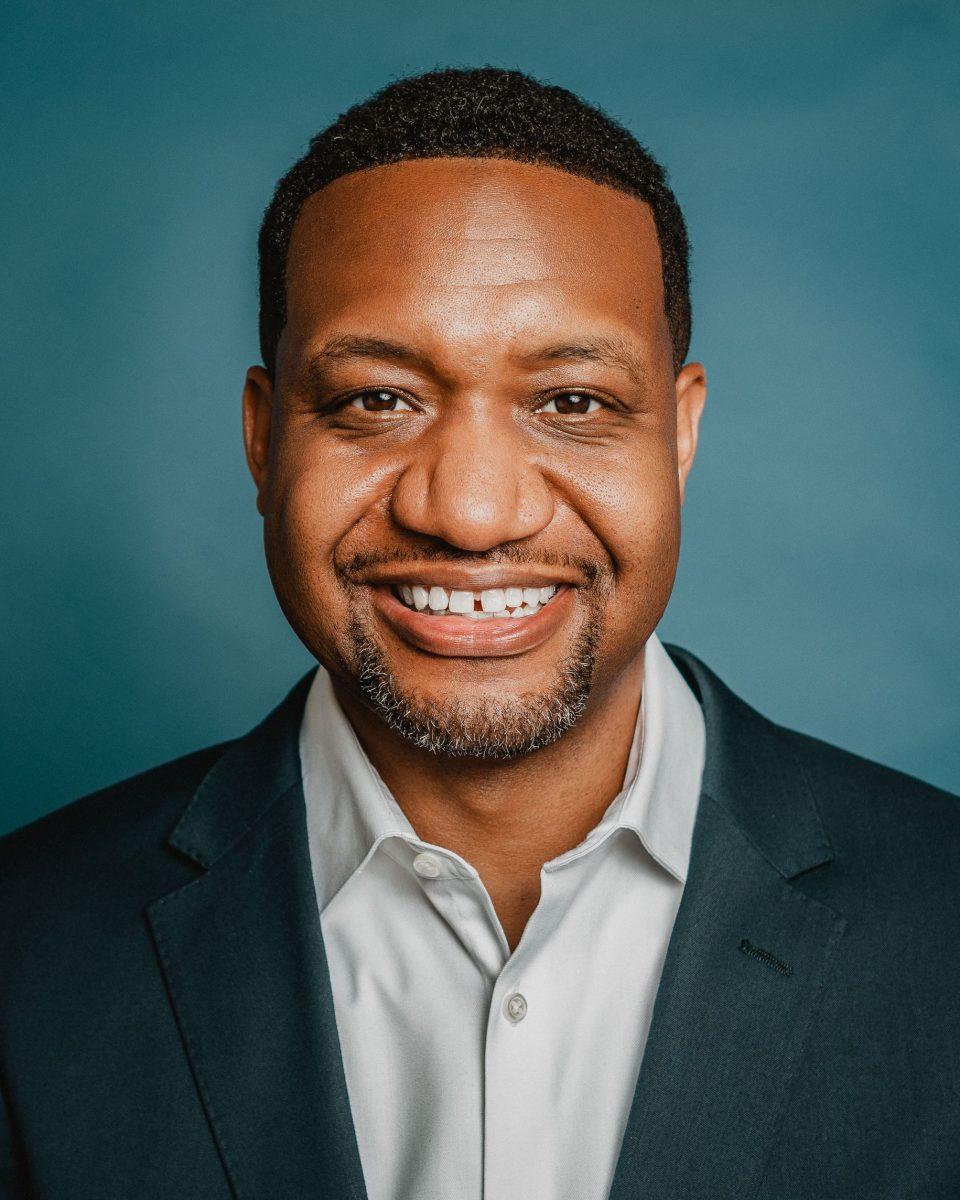(Photo from Tristan Duverglas)
On Dec. 1, Dr. David E. Jones became NJIT’s first chief diversity officer. His role involves advancing diversity, equity, inclusion, and belonging (DEIB) initiatives on campus, including enrolling and supporting diverse groups of students and faculty.
“I was thrilled to be offered the position,” Jones said. “It is an exciting time to join this wonderful and reputable institution, with the recent arrival of President Lim, the expansion of the university strategic plan, and the recent publication of the campus climate report.”
He added that the support for DEIB work among the university’s senior leadership and faculty has guided him in understanding the types of change and impact there can be on campus. “The people I have met at NJIT bring positive energy to DEIB work, and I am truly excited to be working collaboratively with wonderful colleagues to help move this work forward,” Jones mentioned.
As of now, his initial few months in this role will focus on cultivating meaningful relationships with the entire NJIT community — students, faculty, staff, alumni, and other partners. Jones will also be using data from the report of the campus climate survey that was launched to the university community to understand distinct experiences and learn what may stand as priorities.
As the chief diversity officer, he serves as a leader to guide DEIB implementation on initiatives, programs, policy, and procedures in areas such as hiring and recruitment, engagement, training and learning development, sustaining an inclusive culture, and nourishing community partnerships.
“The process for organizational culture change takes time and full commitment and collaboration from all members of the community,” Jones said. “Based on my initial conversations with faculty, students, and staff, I am hopeful we can all come together under one unified approach to better serve all members of the Highlander community.”
He has spent over 15 years working in higher education DEIB administrative, teaching, and consulting roles to help make university campuses more inclusive and equitable. The start of his career, however, focused on student affairs, namely residence life and student conduct. “I quickly noticed the need for DEIB work in higher education, so I connected my lived experiences and professional commitment to begin serving in roles to improve campus climates,” Jones stated.
He has served in diversity leadership roles at institutions such as William Paterson University, Rutgers University–New Brunswick, and the University of Massachusetts Lowell. With NJIT’s commitment to innovation and potential community partnerships with the surrounding Newark community, he was inclined to come to the university.
“I was most attracted to NJIT because of its student diversity and its reputation as an institution that prides itself on academic excellence, innovation, social mobility, and research,” Jones explained. “As the science and technology university of New Jersey, NJIT has the potential to leverage its diversity to increase representation of students from historically underrepresented backgrounds to pursue and succeed in careers in science, technology, engineering, and math.”
While working on DEIB matters, he likes to quote James Baldwin: “Not everything that is faced can be changed. But nothing can be changed until it is faced.”
His determination to be the catalyst of positive change at the university is clear. He said, “We must come together as one Highlander community to collaboratively face the longstanding inequities that disenfranchise some groups of people more than others and create a culture of belonging that can be sustained to help move the university toward a culture that is more inclusive.”
He is prepared to initiate and complete the “important, challenging, yet necessary” work to advocate for faculty, students, and staff and push NJIT towards a more equitable community. He concluded, “The possibilities to help NJIT become a more affirming, inclusive place where everyone feels a sense of belonging are now.”






























